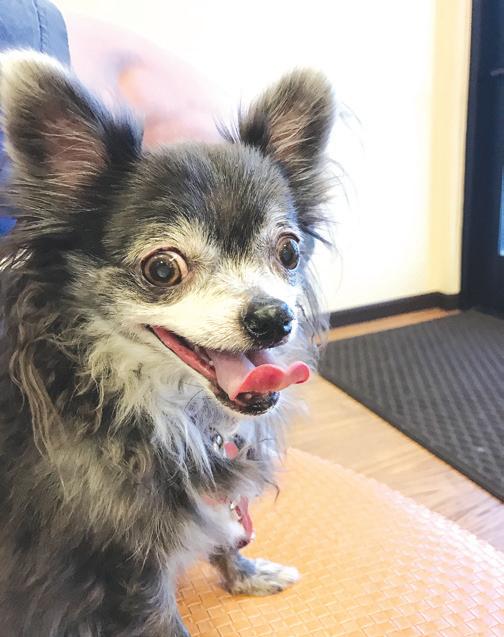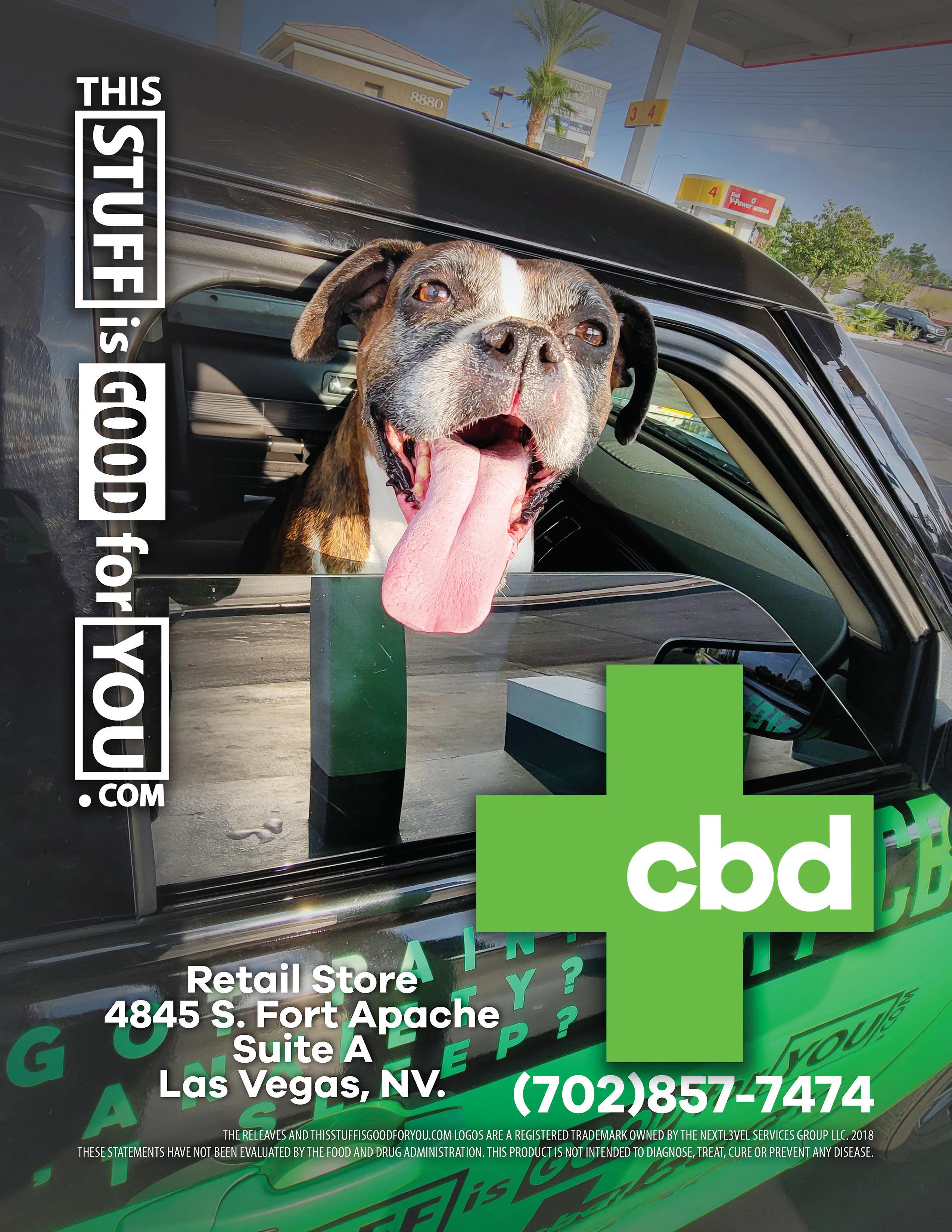
3 minute read
SURVIVING
Surviving Cancer HOW TO PREPARE FOR THE UNIMAGINABLE
They’re the four words no pet parent ever wants to hear: “Your pet has cancer.” However, with November being National Pet Cancer Awareness Month, there’s no better time to make sure you’re prepared should the unthinkable happen.
Advertisement

By H. Turk
Right here in Southern Nevada, the only place that offers full-time medical oncology treatments by boardcertified and residency-trained veterinary oncologists, the Las Vegas Veterinary Specialty Center (LVVSC) sees approximately 2,000 new cancer patients every year. While that number is startling, it doesn’t even include the many cats and dogs that have been under the staff’s continued care. Among those patients is my 15-year-old chihuahua, Orca, who was diagnosed with a mast cell tumor on her upper lip in 2013. By the time the cancer was discovered, it had metastasized to her left lymph node, so we were referred to the California Veterinary Specialists in Carlsbad since that was the closest facility that had the radiation equipment needed to help save her life. For nearly six-and-a-half years, Orca was in remission. Then, this past February during one of her routine check-ups at the LVVSC, her doctors discovered she had splenic lymphoma. Thankfully, this time the best course of action was six months of IV chemotherapy treatments at the LVVSC, so we didn’t have to relocate to California for a month again.
Although both instances were scary, Dr. Stephanie Byrne, one of four oncologists at the LVVSC, wants pet parents to know that a cancer diagnosis doesn’t mean their fur babies have an untreatable illness. There are often many treatment options available that can result in a good quality of life.
“Our aim with cancer therapy is to improve patient comfort, reduce symptoms related to their illness and help control their illness so that our pets live happily and enjoy their normal routines with their families,” Byrne said.
Not surprisingly, treatments can be costly. The LVVSC tries to tailor each patient’s individual care to their family’s financial situation, but if you’re like me, you’re going to want what’s best for your pet. While pet insurance is a great way to reduce the financial burden and pursue more avenues of treatment, it’s important to research different insurance plans before your pet gets sick. When Orca got cancer, I found out the hard way that her insurance only covered services performed by her vet — any specialty doctor appointments weren’t covered. That lack of research on my behalf ended up costing me tens of thousands of dollars over the past seven years since no new insurance companies would cover pre-existing conditions.
While it’s great to have an emergency credit card set aside for unplanned situations like these, you aren’t going to want to incur a lot of interest if you can’t pay off the bill each month. Luckily, the LVVSC accepts CareCredit, a health and wellness credit card that offers special financing options, including no interest on medical expenses of $200 or more at select providers so long as you make the minimum monthly payments and pay off your balance within a certain period of time.
It’s also important to remember that other people care about you and your pet. I’ve had colleagues start online fundraisers both times Orca was diagnosed with cancer to help raise some money to pay her bills. Every dollar helps in situations like these, so don’t be ashamed to accept help.



Of course, an early diagnosis is always the most important factor toward a successful cancer treatment, so be sure to take your pet to the vet for routine wellness exams and don’t be afraid to mention if you notice anything out of the ordinary. I mentioned the bump on Orca’s lip for almost a year before her vet finally biopsied it — trust your instincts. Even if you don’t have a degree in veterinary medicine, you always know your baby best! •










